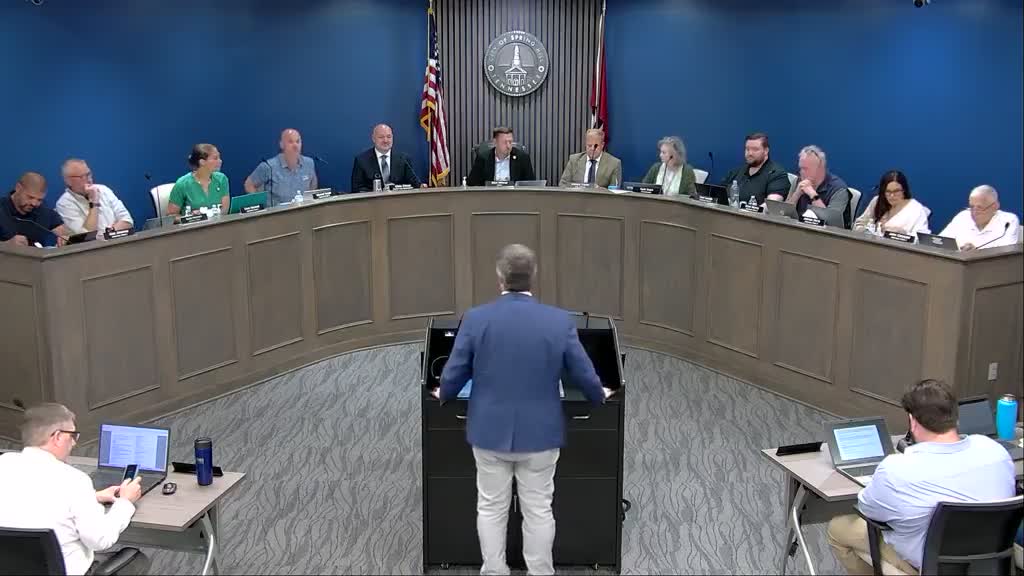Article not found
This article is no longer available. But don't worry—we've gathered other articles that discuss the same topic.
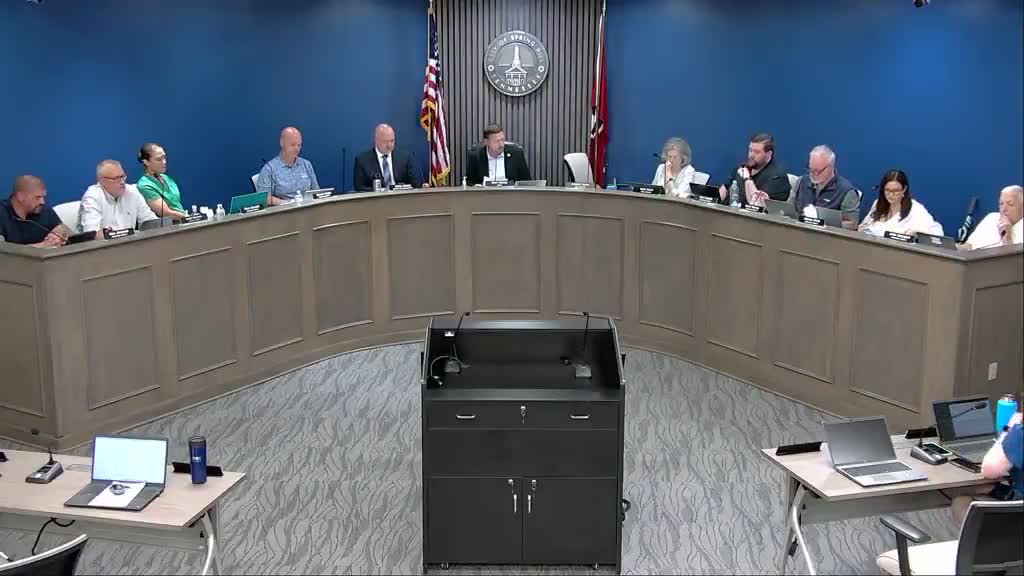
Board acknowledges certified tax rate and advances budget with first readings; finance director says Williamson County reassessment will raise levy
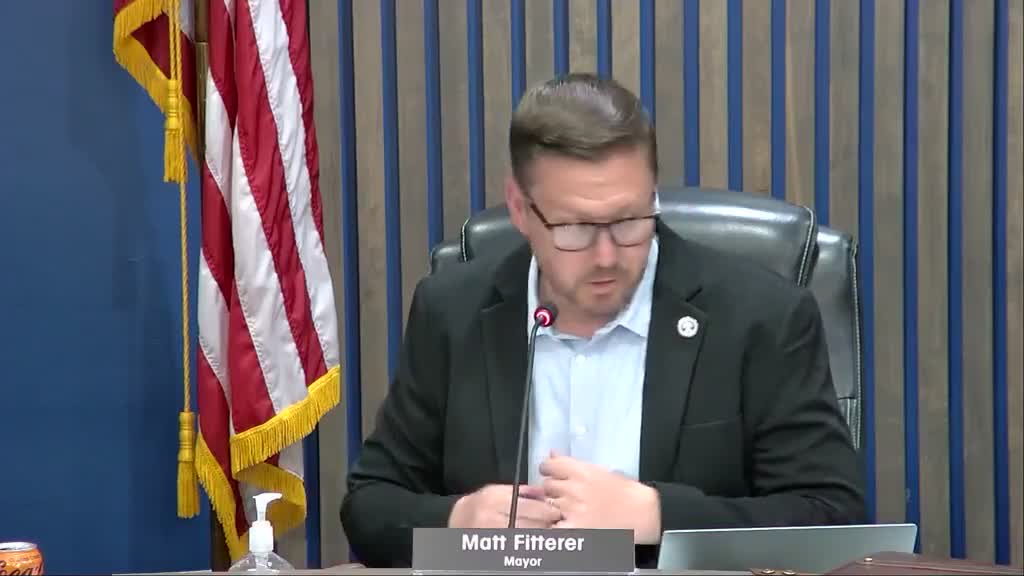
Board approves joint development agreement with GV Spring Hills; amends Commerce Center plan amid timeline concerns
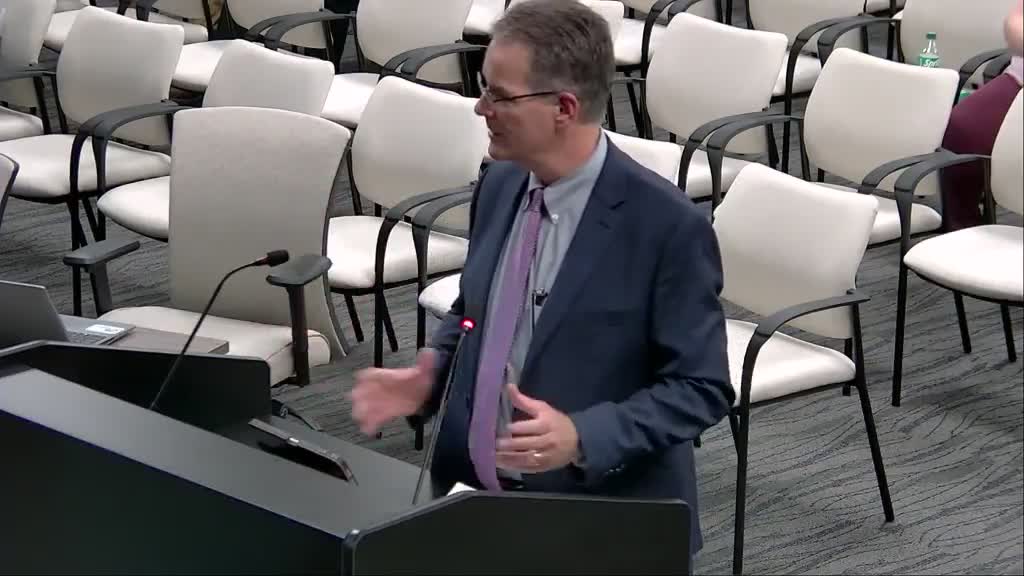
Staff warns a sewer moratorium could cut millions from development funds; board urged to plan funding scenarios
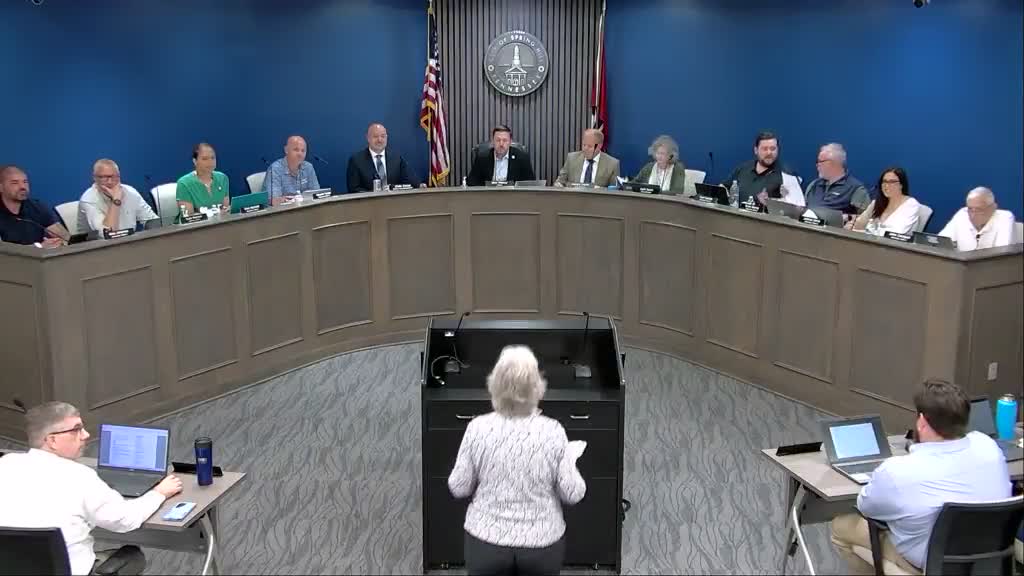
Residents urge board to reject airport district and raise concerns about traffic, noise and environmental impacts
